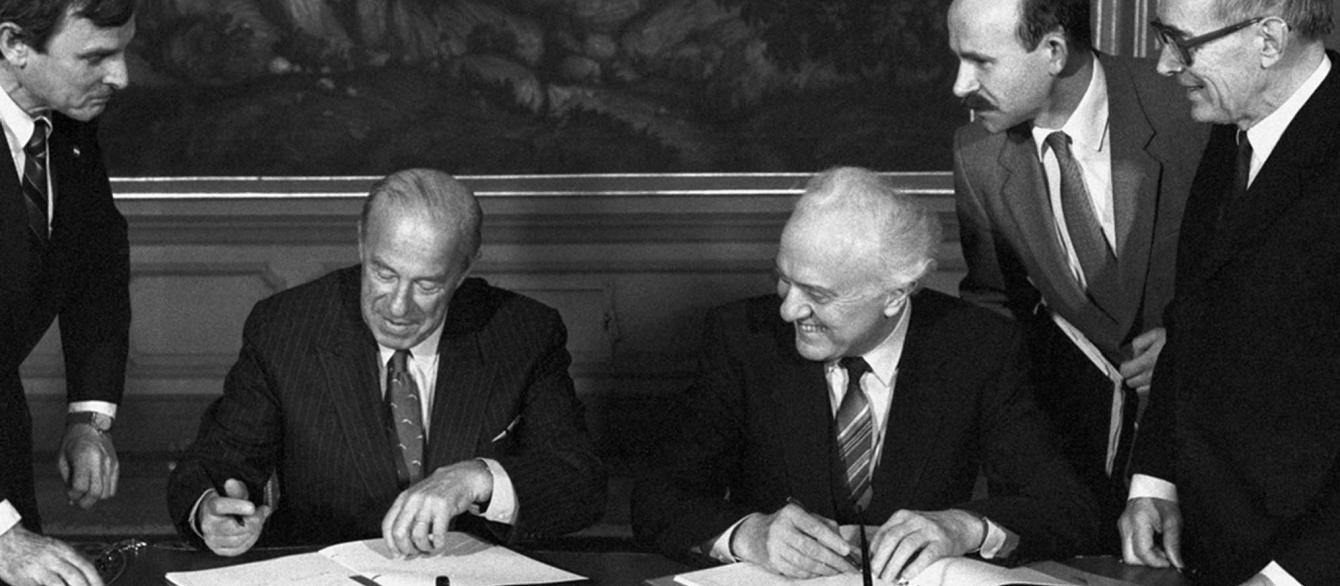The United States and our European allies envision an expanded NATO; Russia opposes it. Russia lays underwater pipelines to deliver natural gas from Russia to Germany; the United States wants to halt the project. From the territorial integrity of Ukraine to rule of law promotion in Central Asia, the United States and Russia have declared uncompromising positions from which negotiations seem unlikely. How can we resolve these intractable conflicts that jeopardize our well-being and stability?
Most negotiations are stalled by parties clinging desperately to their positions, which are often approved and delivered to them by their superiors.
Continuing our series of negotiation lessons gleaned from the late Secretary of State George Shultz, we consider his experience to be a helpful guide in our current challenges. Given Secretary Shultz’s effective advancement of bilateral arms control and help in ending the Cold War, we would be wise to apply his tactics to achieve much-needed, and ever elusive, breakthroughs today.
Lesson Two: Look Beyond Positions to Understand Underlying Interests
Shultz utilized a concept that we at the Negotiation Task Force refer to as “interest-based negotiation.” This strategy shifts focus beyond what each side declares they want - their position—to probe why they actually want it—their interest. By understanding the Soviets’ underlying security concerns and domestic political constraints, Shultz proposed solutions that both sides could agree to and successfully implement. If the U.S. wants to pursue nuclear disarmament, he wrote in 2010, it must first consider and address the issues that make Russia dependent on nuclear deterrence.William J. Perry and George P. Shultz, “How to Build on the Start Treaty,” New York Times, Apr. 10, 2010, https://www.nytimes.com/2010/04/11/opinion/11shultz.html. For Shultz, successful bilateral disarmament negotiations must delve beyond nuclear weapons arsenals to address such underlying topics as the INF Treaty, broader Asian security, and NATO’s role in Europe.Ibid.
Most negotiations are stalled by parties clinging desperately to their positions, which are often approved and delivered to them by their superiors. Negotiations are then reduced to attempts to batter the other side into accepting these pre-approved positions, which ironically, neither side is usually authorized to accept. What results is a frustrating dance defined by impressive oratories but little creativity: expand NATO or not, halt NordStream 2 construction or not. By employing “interest-based negotiation,” Shultz thus avoided this obstacle not by manipulating his counterparts, but by genuinely seeking to understand their perspective. He reminded us to lead with “why” and truly care about the underlying needs and motivations of the other side if there is to be any hope to move beyond their positions.
Reflecting on his 100 years of life in 2020, Secretary Shultz again emphasized the importance of connecting to the needs of the other side:
Genuine empathy helps to create sound relationships across countries, even when cultures seem far apart and when times are tough. Our country will face fresh challenges in an emerging new world: new pandemics, new technologies, new weapons, environmental change, demographic change, and the ever-renewing charge to effectively govern over diversity. A shared understanding, and a human connection, will help us navigate these unsettled waters.George Shultz, “ Life and Learning after One Hundred Years. Trust Is the Coin of the Realm: Reflections on Trust and Effective Relationships across a New Hinge of History, Hoover Institution, Dec. 13, 2020, https://www.hoover.org/sites/default/files/research/docs/shultz_finalfile_web-ready.pdf
Amidst the current Ukraine crisis, cyberattacks, and election interference, it is challenging to interpret Russian aggression with empathy. However, focusing on a genuine desire to understand Russia’s needs and motivations, as Secretary Shultz advocated, can help us shift towards interest-based negotiations and achieve the peace and security the world needs.






